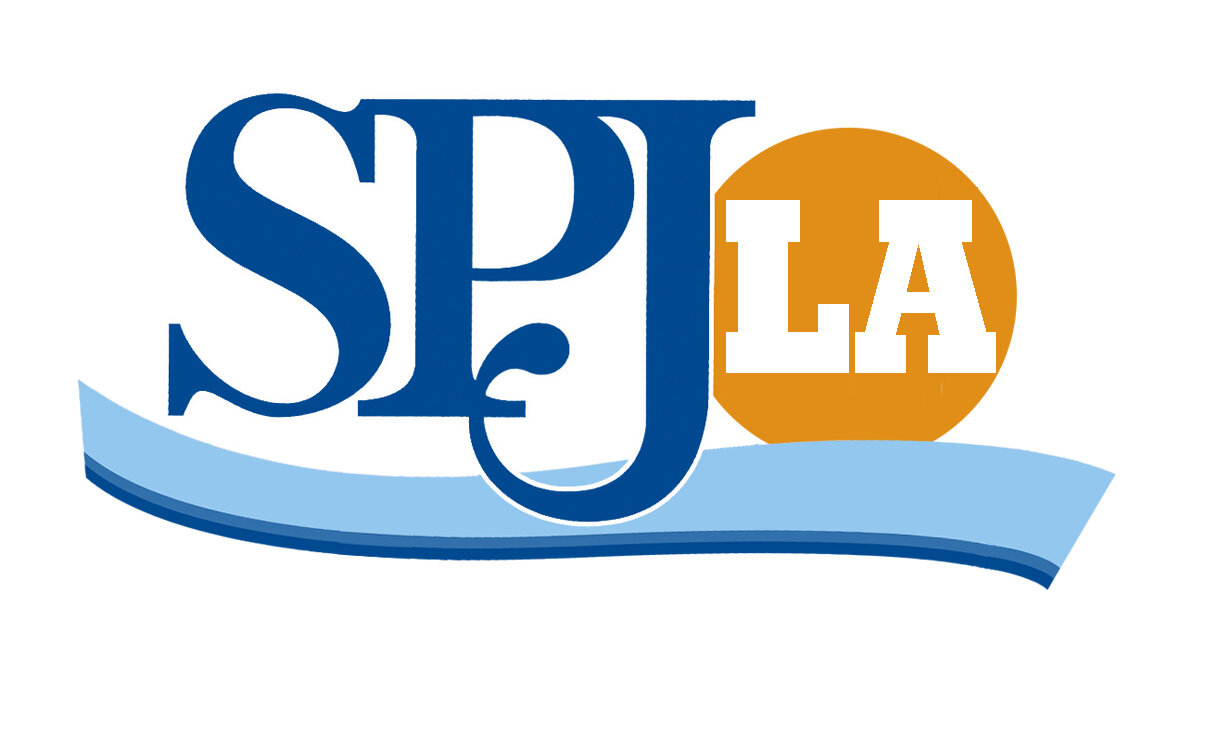SPJ/LA Faults LAPD Echo Park Report
The Greater Los Angeles chapter of the Society of Professional Journalists, SPJ/LA, sent a letter to the Los Angeles Board of Police Commissioners yesterday in response to the LAPD's After Action Report on Echo Park. SPJ/LA joined other local journalism organizations in expressing concerns about the report's shortcomings and about the police use of force and detention of journalists who covered the removal of a homeless encampment at the park in March.
The full LAPD report may be found here.
August 3, 2021
To: Members of the Los Angeles Board of Police Commissioners
SPJ/LA appreciates the opportunity to comment on the LAPD’s After Action Report on the Echo Park Rehabilitation (Item #4-D on the August 3, 2021 Special Meeting Agenda.) Focusing our attention on the portions addressing treatment of journalists and legal observers, we have a number of concerns regarding both LAPD’s investigation and its conclusions:
1) The journalists involved in the Echo Park incidents should have all been contacted and interviewed to create an accurate and well-rounded account. Instead, only the Department’s perspective was represented, and the Department characterized the journalists’ perspective instead of letting the journalists speak for themselves. SPJ notes that Christian Monterrosa, a freelance AP photographer, was struck in the abdomen by a 40mm hard foam projectile during the Echo Park operation. In response to an individual legal claim, the LAPD has stated that this was a mistake - that the projectile was intended for somebody else. Yet there is no mention of this in its "After Action Report." This is a serious omission.
2) The Department continues to misunderstand or misrepresent the Crespo decision as it relates to creating a safe haven area for journalists. Such “media pens” are purely an option for the media to use, if possible and convenient; they are NOT an area where journalists are required to remain, and indeed, they would make the job of covering a fast-breaking incident over a larger area with many individuals virtually impossible. The Crespo zones are permissive, they are not mandatory.
3) SPJ/LA rejects the LAPD’s distinction between “legitimate” and advocacy journalists. The First Amendment makes no content-based distinction among members of the press, or among citizens exercising their First Amendment rights, and neither do we. Bloggers, “influencers,” videographers, photographers, digital journalists and advocacy journalists have the same rights of access as conventional print and broadcast journalists from established legacy organizations—as long as they are acting in a purely journalistic capacity. Any LAPD credentialing or access policies must take that into account.
4) While recognizing that the law remains somewhat ambiguous, we continue to challenge the notion that journalists should be subject to the same dispersal orders as the general public. When they are purely acting in an observational rather than a participatory role, they should be free to remain and continue to serve as the eyes and ears of the public in holding the authorities accountable for their actions.
5) We ask that the Police Commission work with the LAPD to respond to these concerns and gather additional relevant information regarding the police response in Echo Park and similar events in the future.
Joel Bellman
Advocacy Committee Chair
SPJ/LA
bellman.spjla@gmail.com
